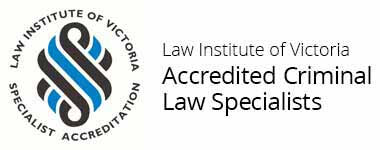FAQs
Most frequently asked questions and answers
- Find a criminal defence lawyer that specialises in criminal law. Generalist firms will often not know where to start when dealing with a criminal matter. There are special procedures; special courts and important time frames to be considered when approaching a criminal matter.
- Go with someone local. Find a criminal lawyer that has a criminal law firm local to the court that you must attend. Lawyers that attend the same court all the time will be more familiar with the prosecutors, the court staff and the magistrates or judges that sit at these local courts, ultimately this will usually relate to a better outcome for you.
- Consider the reviews. Look for a criminal law firm with reviews that are on average in the high 4’s. When considering the reviews, make sure they look natural. Any firm that has hundreds and hundreds of reviews over a year or two, is likely to be creating fake reviews. By going through them, you should get a feel whether they appear natural or not. At Dribbin & Brown Criminal Lawyers, every review is a legitimate review.
- Once you have identified a criminal law firm, then make an appointment. In relation to matters where you already have a court date, the best criminal law firms will offer clients a free no obligation appointment. At Dribbin & Brown Criminal Lawyers, we are comfortable that if you attend our office and seek advice from one of our lawyers about a matter, that you will not want to go anywhere else.
If it is a very straight forward matter that is finalised in one day, the fee will usually range from $2000 – $3000. If it requires multiple adjournments or is a serious matter, then the fees will be higher. Every case is different, it depends if the matter can resolve early or will be proceeding to a contested hearing or a trial. The best course, if you have a brief or a charge sheet, make an appointment so one of our lawyers can give you a costs assessment, from there you will know. What you should not do, is not see a lawyer because you think it will cost too much, often a bad outcome can cost you a lot more.
- Look for a lawyer that works for a firm that specialises in criminal law.
- If it is a serious matter then look for a lawyer that is a criminal law specialist as certified by the law institute of Victoria, or look for a lawyer with many years’ experience.
- Go with a bigger firm, bigger criminal law firms have a wealth of experience, experience counts.
- If you have been summonsed or bailed to attend a local court, then look for a lawyer that attends that court regularly and that specialises in crime, then you will be assured of having someone that will be able to get the job done for you.
Some cases will be resolved on the first day that the matter is listed, either because we negotiate a withdrawal, or because the matter proceeds as a plea of guilty. Other matters will only finalise once they reach a contested hearing or a jury trial. Either way the best way to determine how long your matter will take, is to sit down with an experienced criminal defence lawyer as soon as possible. If you already have a court date, it won’t cost you anything to get a better idea about the direction of your case.
This is a difficult question to answer, as it will always depend on the evidence. If your instructions are to plead guilty, then that will be easy, if your instructions are to get the head charge withdrawn and resolve the matter on a lesser charge, it will really depend on the evidence and how the discussions with the prosecution unfold. The best head start you can give yourself in this situation is to get an experienced criminal lawyer that knows the local court and who will have dealt with the prosecutors before. In these circumstances, your chances of a favourable outcome will be greatly improved.
A public defender in Victoria is someone that works for Victoria Legal Aid, as an in-house trial counsel. Don’t get confused with the American system, the definition of public defender is different in Australia. In Australia public defenders are like barristers, but they work for legal aid. A public defender is different to the duty lawyer at the local magistrate’s court. This lawyer changes from day to day. When you engage a private criminal lawyer, your lawyer will be with you from the start to finish. If your matter is heading to a jury trial or a contested hearing, you will have more than one option when considering your trial counsel. You will be able to choose from anyone at the bar and your choice will only be limited by the money you are prepared to spend. We brief barristers to appear in the Magistrate, County and Supreme Courts as well as the Court of Appeal on a regular basis and have established excellent relationships with some of Victoria’s more preeminent barristers.
Your primary right during a criminal trial is the right to provide instructions to your legal representative and expect those instructions to be carried out. As an example, if you wanted to plead not guilty, then those instructions must be carried out, regardless of the advice provided by our office or a barrister. You also have a right to have your matter heard by a jury of your peers in relation to any indictable matter. There are several other rights but that is a larger discussion.
We provide appointments, via zoom, via telephone and in person. All our lawyers have their landlines connected to their mobile phones so as to make client contact easier. We always make it easy to keep in touch with our lawyers as we understand the stress and embarrassment that can often be associated with having to attend court. We understand that communication is the key to alleviating any concerns our clients have about their impending case.
This is a complicated question. There are considerations that relate to procedure and then there are considerations that relate to the possible outcome.
In relation to procedure, if the matter is in the summary stream, then the possible outcomes are that the matter;
- could resolve at a first listing either by way of a plea of guilty or by being struck out by a magistrate following a negotiation to have the matter withdrawn.
- could be adjourned to allow for further evidence to be requested.
- could be adjourned for a contest mention and then resolve at that contest mention by way of a plea of guilty or by way of withdrawal, following further negotiations
- could go all the way to a contested hearing and either resolve on the day of court, be struck out by a magistrate due to a lack of evidence or result in a finding of guilt by the magistrate.
If the matter relates to the indictable stream, then it is a much longer and more costly process, follow the link for more information about this.
- In most circumstances, yes, but time frames apply. If the matter is listed before a Judicial registrar in the magistrates court, you can appeal the matter to a magistrate by virtue of 16K of the Magistrates Court Act.
- If the matter is first before a magistrate, then it can be appealed to the County Court unless the matter relates to infringment warrants
- If the matter is before a County or Supreme Court Judge, then this is a much more difficult process, but you do have a right to seek leave to appeal to the court of appeal
- What you should take away from this is that time is of the essence. If you are unhappy with a decision, it is important you get advice as soon as possible.













